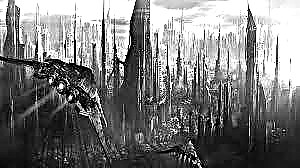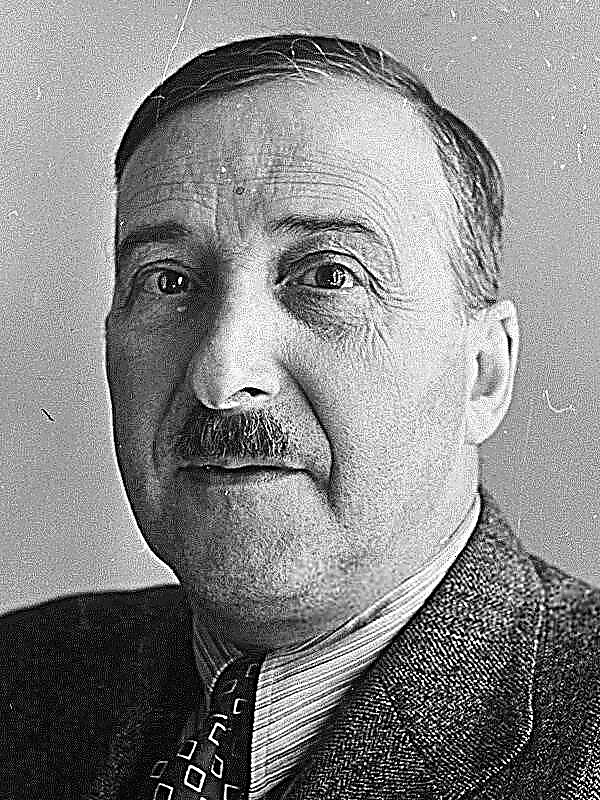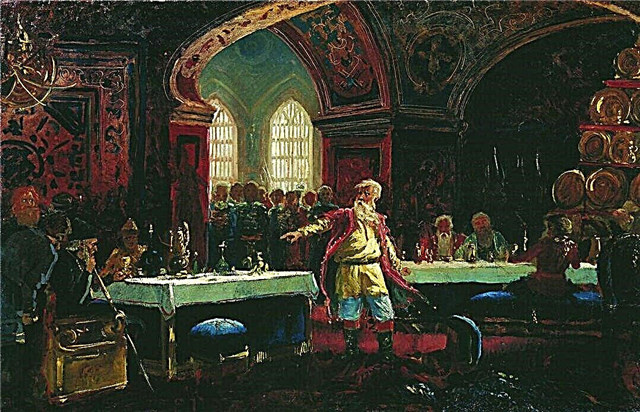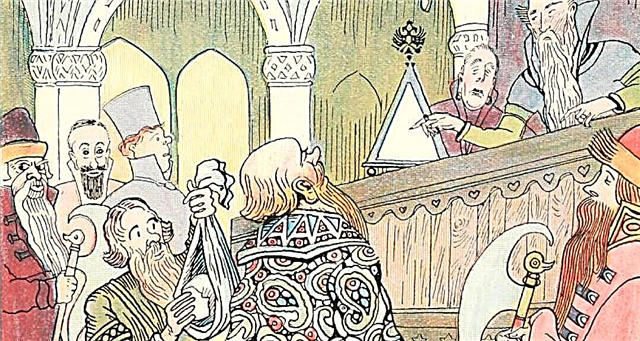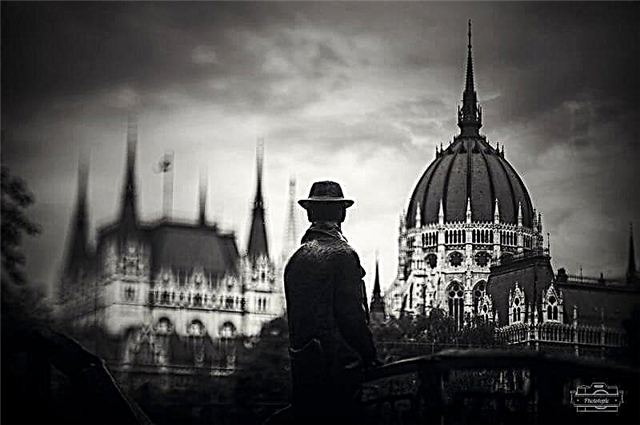Share
Pin
Tweet
Send
Share
Send
In the texts to prepare for the exam in the Russian language, the problem of loneliness is often raised. All of its facets were identified by us in the process of painstaking work. Each of them corresponds to arguments from the literature. All of them are available for download, link at the end of the article.
Loneliness due to differences of belief
- Often people cannot understand those who have the opposite opinion. The main character novel by I.S. Turgenev "Fathers and Sons" doomed to loneliness because of his views on the world. Evgeny Bazarov is a nihilist. For his time, such a position was something radical. Even now, in modern society, love, family, religion, etc. are valued. Denial of such values leads to the fact that a person can be considered crazy. Of course, Bazarov has many followers. But, in the end, we see that even his friend Arkady, in the end, refuses these views. Feeling a misunderstanding, Bazarov leaves for his village where he dies. And only parents come to his grave.
- Many writers tried to uncover the theme of loneliness. M.Yu. Lermontov in the novel “Hero of our time” tells us about the fate of a completely lonely person in the soul. Pechorin was born into a rich and noble family, was handsome and smart, and also surrounded by many women and fake friends. But he never really tried to get close to them. It seemed to Gregory that his whole existence was meaningless. He did not see interest in the people around him, and indeed throughout the world as a whole. Pechorin often thinks about life, trying to understand his suffering. In pain, he repeatedly inflicted pain on other people as well, always being alone.
- Many of us are afraid to stand out with something, because sometimes it ends with condemnation from society. So in comedy “Woe from Wit”, A. S. Griboedov talks about the life of a misunderstood person. The main character is endowed with the features of an honest, independent thinker and even a prophet: he predicts the inevitable collapse of the world of the Moscow nobility, because it is based on lies and pretense. Alexander Chatsky is trying to fight the injustice of this world. He refuses to build a career in Russia because of the corruption system and opposes serfdom. However, his views are not accepted in the “Famus society”, where money and social status are important in the first place. The hero is not accepted and considered crazy. And the betrayal of Sophia makes him leave the Famusovs home forever. It so happened that the pursuit of truth and justice led Alexander to the fact that he became a stranger in his homeland.
Forced loneliness
- We never want to feel alone. However, circumstances often decide for us. So, and in the work M. Sholokhov "The fate of man" Andrei Sokolov is not alone of his own free will. Members of his family die in the war. First, the wife and daughters die because of a shell falling on their house. Then, at the end of a terrible, tragic war, his son, shot dead by a sniper bullet, also dies. May 9, when for many the bloody massacre was over. As a result, the main character remains without relatives and without a home. Alone in this world. At the end of the story, Vanya, a little boy left without parents, gives life to Andrey. Sokolov takes him in charge, saving another lonely soul.
- Loneliness is scary in its essence, especially when it is forced. Samson Vyrin, the main character the story of A.S. Pushkin "Station Warden"lives happily with his daughter until Dunya escapes from home, leaving a poor father. For four years, loneliness instantly ages the hero, turns him from a lively and peppy man into a frail old man. The desire to see his daughter makes Samson walk to St. Petersburg. But there he receives only the contempt of the groom. Seeing her father, the girl faints. Because of this, the old caretaker is driven out of the new life of his own daughter. So no longer seeing his daughter, Samson dies. But Dunya realizes the severity of his act, only standing on the grave of his father.
Loneliness as a lifestyle
- Sometimes a person creates an atmosphere of loneliness for himself. Central character novel I.A. Goncharova "Oblomov" acts as one of the brightest characters in Russian literature. His life is limited to the aisles of one room. Ilya prefers to lie on the couch, sleep and occasionally call his servant, rather than spinning around in society in search of profitable connections and pleasant entertainment. A lot of people visit the hero, including his friend Stoltz, who is trying to get Oblomov out of the house. But does the hero need this? For himself, Ilya Ilyich has long decided that a lonely, unencumbered existence is much more convenient and calmer for him.
- “He who lived and thought, cannot help despising people in his soul,” said the protagonist novel by A. Pushkin "Eugene Onegin". He does not see the point in his existence. The life of other people is not interesting for a secular rake, but its own does not give much pleasure. He has all the resources to live happily: money, friends, going to the theater and giving ladies attention. However, instead, the hero prefers to suffer and still hopes to find decent entertainment. Over the years, Eugene lost the feeling of love for his neighbors. With his behavior, he destroys Lensky and Tatyana, not suspecting that he is also destroying himself.
Loneliness in fame
- Often we hear from showbiz stars that they are single. But this is hard to believe when a person has fame and money, when many people love you. I tried to raise this problem Jack London in Martin Eden. Until the main character became famous and became rich, no one wanted to communicate with him. Many did not believe in him, considered the hero a failure. No one supported him in his creative endeavors. Even the hero's lover, Ruth, turned her back on him. However, when fame came to Martin, and everyone began to talk about him, they immediately began to invite him to attend, to pay attention. Even Ruth tried to return to him with a plea for forgiveness. But Martin understood that this meant nothing to him. He knew that he had not changed since that time and continued to feel lonely. And the world around him became disgusting.
- Great opportunities do not save a person from loneliness. Thinks about it D. Keyes in "Flowers for Algernon". Charlie Gordon at the beginning of the novel appears before the reader as a moronic man, whom everyone laughs. Scientists offer him an operation to improve intellectual abilities. After her, Charlie Gordon is becoming smarter and smarter. As he develops, he realizes that his work friends actually mocked him, and did not show friendly participation, as it seemed to him earlier. Moreover, people still misunderstand the “smart” Charlie, exposing envy and resentment at his new opportunities. Now, colleagues consider the hero an egoist and an upstart. The hero becomes even more lonely. Paradoxically, it’s much harder for Charlie intellectuals to live in society. Although initially it seemed to Gordon that with an educated person, society was more willing to find a common language. However, in reality, everything turned out to be the other way around.
Share
Pin
Tweet
Send
Share
Send



